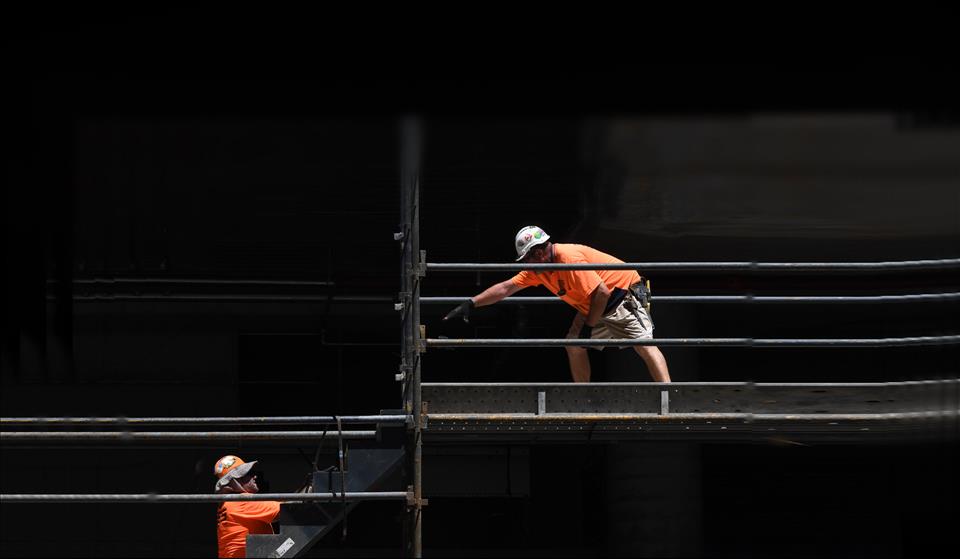
Labor Wants To Put The Construction Union Into Administration, But Last Year It Axed The Cop On The Beat. That Doesn't Look Wise
Workplace Relations Minister Tony Burke said on Wednesday there could be“no place for criminality or corruption in any part of the construction industry”. He promised to legislate if necessary.
The commission's decision to investigate placing the union's construction division into administration follows allegations of thuggery, kickbacks, standover tactics and the parachuting of senior bikie figures into lucrative union positions aired in Nine newspapers and on the Nine television network.
Burke also promised to use the government's procurement powers to ensure enterprise agreements used on government-funded projects were genuinely agreed and workplaces were free from intimidation .
But the allegations ought not to have come as a surprise.
Two decades ago, one of Australia's most expensive and lengthy royal commissions, the 2002 Cole Royal Commission into the Construction Industry , led to the creation of the Australian Building and Construction Commission.
The ABCC, as it was known, was to be the building industry's“cop on the beat”.
Decades of lawlessnesRoyal Commissioner Justice Terence Cole found“a culture of lawlessness” in the industry, although he didn't find evidence of organised criminal activity.
Once established, the ABCC monitored and promoted compliance with a number of codes and laws. These included the Code for the Tendering and Performance of Building Work , the Building and Construction Industry (Improving Productivity) Act and the Fair Work Act.
The Code for the Tendering and Performance of Building Work ought not to be confused with the industry's long-standing National Construction Code , which sets minimum standards for the design and performance of buildings.
When Labor regained power two years ago, Burke, as the newly sworn-in minister, confirmed he would implement Labor's election promise to shut down what he called a“politicised and discredited organisation”.
A rap sheet covering five statesThe commission was abolished as part of Labor's Fair Work Legislation Amendment (Secure Jobs, Better Pay) Act in February 2023.
The commission had fined the union a total of A$16.1 million over six years.
The rap sheet was long and extended beyond the construction divisions's traditional stronghold of Victoria to Sydney, Brisbane, the Gold Coast, Adelaide and Perth.
Prosecuting the union and its officials took up most of the commission's time. It also dealt with countersuits from the union and took action against and was sued by developers in cases in which the union was often a third party.
In 2022, in work commissioned by Master Builders Australia, Ernst & Young estimated the economic costs of Labor proceeding with its plan to abolish the ABCC at $47.5 billion by 2030 .
The report foresaw higher costs and lower productivity in construction if the commission was abolished. It said this would act as a“handbrake” on the manufacturing and service sectors, given their dependence on construction.
Two decades on, a fresh crackdownIt is worthwhile asking why, two decades after a lengthy and expensive royal commission that found a culture of lawlessness in the industry, the government thought it was safe to close down the industry watchdog and now feels it necessary to crack down on the union the watchdog policed.
Thousands of construction industry contracts and deals are done each week. The industry has high levels of subcontracting and thin profit margins alongside inherent uncertainty and risks. This makes it an ideal breeding ground for improper industrial behaviour.
There remain too many instances of blatant corner-cutting and coercive behaviours, some of them illegal.
A separate employer-funded Construction Industry Culture Taskforce established in 2018 might help, but the government needs to also show it is committed to the change it has just begun 17 months after abolishing the Building and Construction Commission.

Legal Disclaimer:
MENAFN provides the
information “as is” without warranty of any kind. We do not accept
any responsibility or liability for the accuracy, content, images,
videos, licenses, completeness, legality, or reliability of the information
contained in this article. If you have any complaints or copyright
issues related to this article, kindly contact the provider above.


















Comments
No comment